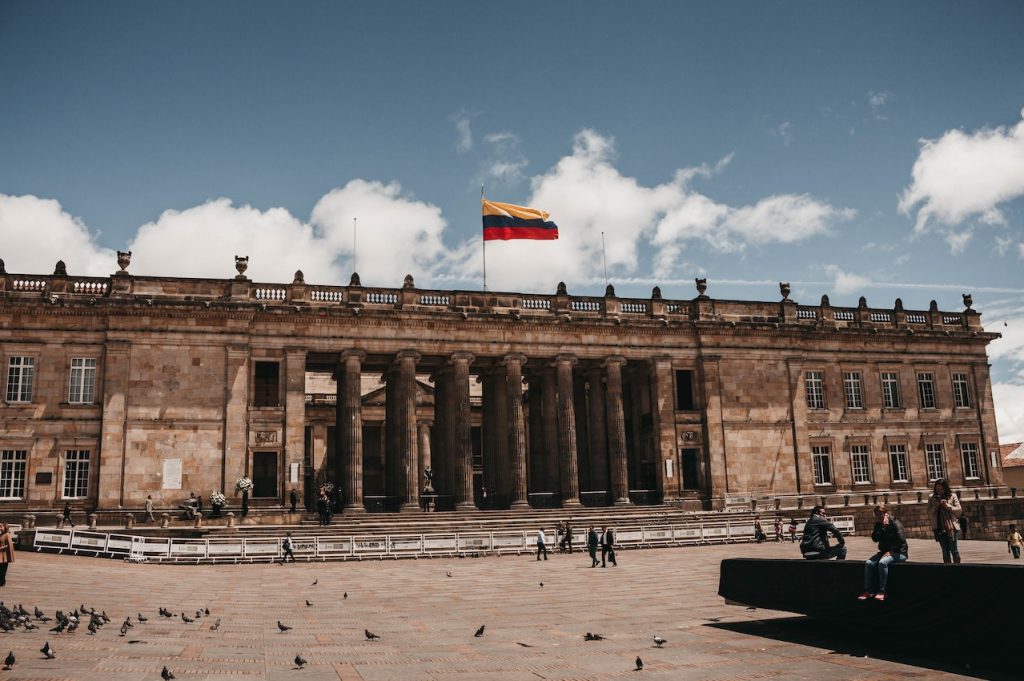The House of Representatives in Colombia has approved a project to legalize recreational cannabis for adult use in the country. The bill passed the House of Representatives with 98 votes in favor, signaling a strong shift towards a drug policy focused on prevention and public health. The project will now move to the Senate for further consideration before potentially becoming law.
Colombian House of Reps Approves Cannabis Legalization Bill


The project to legalize cannabis in Colombia has officially been adopted by the country’s House of Representatives. The new law must now be submitted to the Senate to overcome the final two hurdles before potentially being transmitted to the president.
For more news like this, download our free cannabis news app.
Colombia Opens a New Chapter
After a close vote last month, lawmakers resumed the bill on Tuesday, approving it during the sixth of the eight required debates with a vote of 98 to 57. The bill must now be submitted to a Senate committee, then passed by the Senate to be enacted in Colombia.
Colombia is “ready to take a step forward towards a new drug policy that abandons the failed paradigm of prohibition and paves the way for a policy guided by public health guidelines, prevention of consumption, and guaranteeing citizens’ rights,” said the bill’s author, Representative Juan Carlos Losada Vargas of the Liberal Party.
“We are just a step away from starting to write a new chapter in the fight against drugs; at this stage, it is a matter of political will,” he said. “Every vote is decisive” for Colombia.
Previous Versions of Cannabis Bill for Colombia
Last year, the House and Senate passed different versions of legalization legislation for Colombia, and both bodies decided to make the bills identical in December. The Senate overwhelmingly approved its version of the bill that month after receiving initial approval from the House.
As a constitutional amendment proposal, the proposal must go through the complete legislative process in each chamber twice, in separate calendar years, to be enacted in Colombia.
Colombia Cannabis Bill Details
The legalization bill supports “the right to the free development of personality, allowing citizens to decide on cannabis consumption within a regulated legal framework” in Colombia. It would also mitigate “arbitrary, discriminatory, or unequal treatment faced by the consuming population.”
It also calls for public education campaigns and the promotion of addiction treatment services.
Colombia Victim of Failed War on Drugs
During a public hearing in the Senate last year, Justice Minister Néstor Osuna said Colombia had been a victim of a “failed war designed 50 years ago that, due to absurd prohibitionism, brought us a lot of bloodshed, armed conflicts, mafias, and crimes.”
The House of Representatives gave its initial approval to the legalization project for Colombia last year. The head of the Interior Ministry also expressed support for the reform proposal at the time. This vote came shortly after a congressional committee advanced this measure and another legalization bill.
President Discusses Cannabis Bill Benefits
President Gustavo Petro, a progressive who has vigorously advocated for an end to drug criminalization at the international level since taking office in August, discussed the potential benefits of cannabis legalization.
Last year, the Colombian president delivered a speech at a United Nations (UN) meeting, urging member countries to radically change their approach to drug policy and end prohibition.
Economic Benefits and Black Market Impacts
Mr. Petro also mentioned the possibility of legalizing cannabis in Colombia to reduce the influence of the illicit market. He also indicated that this policy change should be followed by the release of individuals currently imprisoned for cannabis possession.
He mentioned the economic potential of a legal cannabis industry in Colombia, in which small towns in the Andes, such as Corinto and Miranda, could benefit from legal cannabis cultivation, potentially without the need for a license.
—
(Featured image by Jose Vasquez via Pexels)
DISCLAIMER: This article was written by a third-party contributor and does not reflect the opinion of Hemp.im, its management, staff, or its associates. Please review our disclaimer for more information.
This article may include forward-looking statements. These forward-looking statements generally are identified by the words “believe,” “project,” “estimate,” “become,” “plan,” “will,” and similar expressions. These forward-looking statements involve known and unknown risks as well as uncertainties, including those discussed in the following cautionary statements and elsewhere in this article and on this site. Although the company may believe that its expectations are based on reasonable assumptions, the actual results that the company may achieve may differ materially from any forward-looking statements, which reflect the opinions of the management of the company only as of the date hereof. Additionally, please make sure to read these important disclosures.
First published in Newsweed, a third-party contributor translated and adapted the article from the original. In case of discrepancy, the original will prevail.
Although we made reasonable efforts to provide accurate translations, some parts may be incorrect. Hemp.im assumes no responsibility for errors, omissions or ambiguities in the translations provided on this website. Any person or entity relying on translated content does so at their own risk. Hemp.im is not responsible for losses caused by such reliance on the accuracy or reliability of translated information. If you wish to report an error or inaccuracy in the translation, we encourage you to contact us.



Comments are closed for this post.